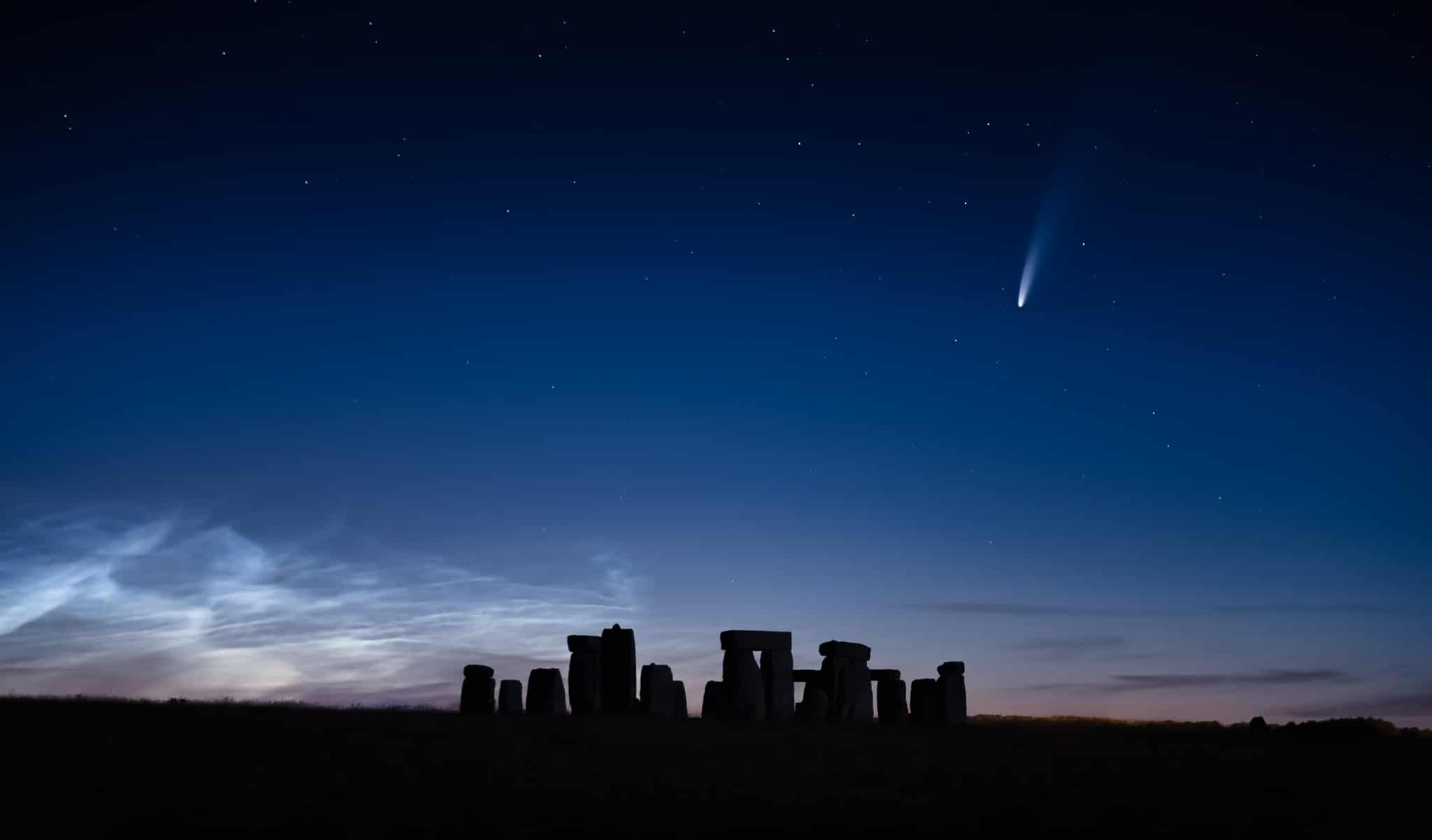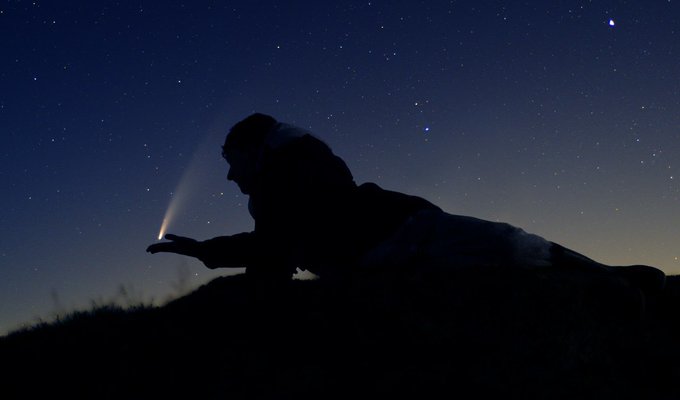Please log in to submit content!
Please log in to submit content!

By Animesh Sasmal Tuesday July 14, 2020
After the last month’s solar eclipse, India is going to witness another rare cosmic scene in the sky.
A newly discovered comet C/2020 F3, also known as Neowise, which has been spotted from several parts of the world, will now be visible in India. From Tuesday, 14th July after the sunset, Comet Neowise will be clearly visible for Indians stargazers.
Comet Neowise will be clearly visible in the north-western sky of India for the next 20 days from 14th July, said Deputy Director of Pathani Samanta Planetarium in Odisha.
NASA’s special space observation telescope ‘NeoWise‘, first captured the comet on March 27, 2020. So the comet has been named after the NeoWise telescope. At that time it was a 10th magnitude comet, located 2 AU (300 million km; 190 million mi) away from the Sun and 1.7 AU (250 million km; 160 million mi) away from the Earth.
Time and dates:
Comet Neowise will be bright enough to be visible for observers in the northern hemisphere, can be observed from India also.
Subhendu Pattnaik, deputy director of Pathani Samanta Planetarium, Bhubaneswar, said Comet NeoWise will be seen in the north-western sky for around 20 minutes after the sunset every day for the next 20 days.
The comet provides a stunning night-time show after buzzing the sun and expanding its tail.
Yes, you can able to see the rare comet with your naked eye. After the sunset for around 20 minutes every day in the north-western sky of India from 14th July 2020. In the dark skies with little or no light pollution, binoculars are needed to see the long tail, according to NASA.
However, at this time due to the monsoon season in India, the rainy sky can stand in the way of this beautiful view.
The comet will be visible across the Northern Hemisphere until mid-August, when it heads back toward the outer solar system.
According to NASA, The next time this comet will be visible from Earth will be the year 8,786 – which is almost over 6,700 years later.
The Comet Neowise is notable for being one of the brightest visible to observers in the northern hemisphere since Comet Hale–Bopp in 1997.

Write a comment.